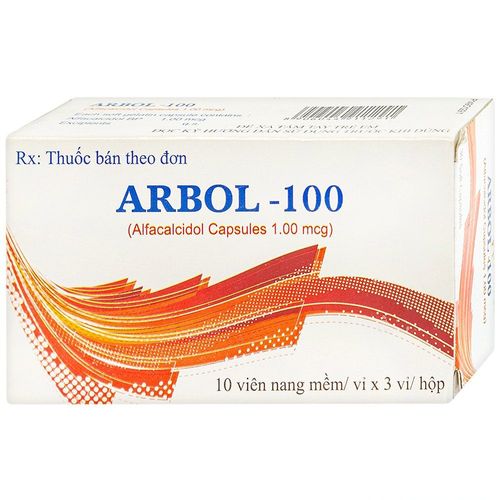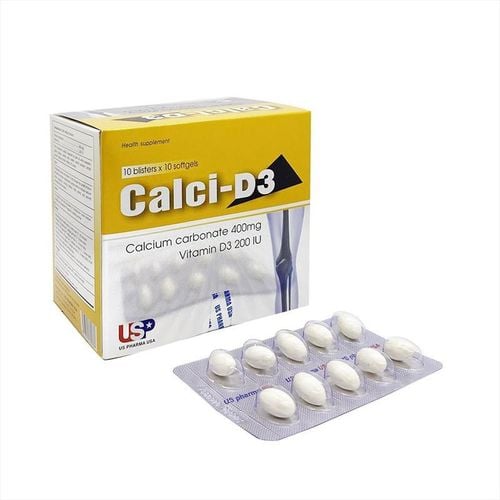This is an automatically translated article.
The article is professionally consulted by Master, Doctor Ngo Thi Oanh - Pediatrician - Pediatrics - Neonatology - Vinmec Ha Long International General Hospital.Micronutrients play an important role in children's physical and intellectual development and disease prevention. Therefore, micronutrient deficiency in children can cause many serious harms, affecting children's health and development.
Micronutrients are divided into 2 groups as follows:
Minerals: Including iron, zinc, calcium, phosphorus, copper, iodine, selenium,... Vitamins: Vitamins A, C, E, D, B, ... For children, micronutrients play an important role for children to develop both physically and intellectually and to help children stay healthy and prevent diseases. The child's body cannot synthesize micronutrients on its own, but must be supplemented from the daily diet.
1. What is micronutrient deficiency?
Micronutrient deficiency in children is a condition in which children are deficient in minerals and vitamins important to health, occurring on a community scale, usually vitamin A, iodine, iron, zinc, and folic acid.
There are many causes of micronutrient deficiency disease in children, such as geographical factors and regions, mainly plant-based diets, children not getting enough minerals and vitamins in their daily diets, especially especially in some stages of children needing outstanding development such as the fetal stage, from birth to 5 years old, before and during puberty,...

Thiếu vi chất dinh dưỡng ở trẻ em là tình trạng trẻ thiếu hụt các vitamin và khoáng chất quan trọng
2. Harm of micronutrient deficiency in children
Micronutrient deficiency in children can cause the following harms:Anemia: Iron deficiency anemia is one of the common micronutrient deficiencies in children. Anemia can make children sleepy, poor concentration, retarded in physical and intellectual development. Children with severe anemia have a higher risk of respiratory infections. In the fetal stage, if the mother does not provide enough iron for herself and the fetus, it can increase the risk of the baby having a neural tube defect or being born prematurely. Rickets: Vitamin D and calcium deficiency leading to rickets in children is very common and can affect adulthood, causing osteoporosis. Goiter: Iodine deficiency leading to goiter is also a common micronutrient deficiency. In the fetal stage, if the mother does not provide enough iodine, it can increase the risk of premature birth, miscarriage or stillbirth. Children after birth with iodine deficiency for a long time are at risk of having defects in hands, feet, ears, eyes, mouth, brain damage, cretinism, mental and physical retardation. Malnutrition, impaired resistance: Zinc deficiency leading to malnutrition is a common micronutrient deficiency in children. Zinc deficiency makes children stunted, slow growth due to anorexia, reduced resistance, children are susceptible to respiratory infections, acute and chronic diseases. In the fetal stage, children with zinc deficiency increase the risk of low birth weight and short stature after birth. Growing up, children may delay puberty, slow bone development. Eye diseases: Vitamin A deficiency is a common childhood micronutrient deficiency. Vitamin A deficiency can lead to eye diseases such as blindness and night blindness. In addition, vitamin A deficiency also affects the development, growth in weight, height, immunity of children, increases the risk of gastrointestinal infections such as diarrhea, respiratory tract.

Một trong những tác hại khi trẻ thiếu vi chất dinh dưỡng đó là còi xương do thiếu hụt vitamin D và canxi
3. Prevention of micronutrient deficiency in children
To prevent micronutrient deficiency in children, it is advisable to start from the fetal stage with adequate nutrition for mother and fetus. After birth, in the first 6 months of life, babies need to be exclusively breastfed and mothers need to pay attention to eating enough foods and synthetic supplements to provide their babies with a rich source of nutritious breast milk.From the age of 6 months, babies are given solid foods to supplement the source of micronutrients besides breast milk. Children's daily diet needs to ensure 4 main groups of substances, which are starch, protein, sugar and fat. The menu needs to be varied to meet the needs as well as prevent micronutrient deficiencies in children.
In summary, micronutrient deficiency in children can cause iron deficiency anemia, rickets due to vitamin D and calcium deficiency, iodine deficiency goiter, malnutrition and resistance decline due to zinc deficiency as well as other diseases. eye disease due to vitamin A deficiency. Therefore, when there are signs of micronutrient deficiency in children, parents should take the child to a medical facility for specific examination and advice.
Children's nutrition is extremely important to help children grow comprehensively. Children who do not eat properly are at risk of micro-mineral deficiencies, causing anorexia, growth retardation, malabsorption, etc. If they notice the above signs, parents should supplement their children with supportive products. The supplement contains lysine, essential micro-minerals and vitamins such as zinc, chromium, selenium, and B vitamins to help fully meet the nutritional needs of children. At the same time, these essential vitamins also support digestion, enhance nutrient absorption, help improve anorexia, and help children eat well.
Parents can learn more:
Signs of zinc deficiency in children
Micronutrient deficiency and failure to gain weight in children
Please regularly visit Vinmec.com website and update useful information to take care of your child. Take care of the baby and the whole family.













